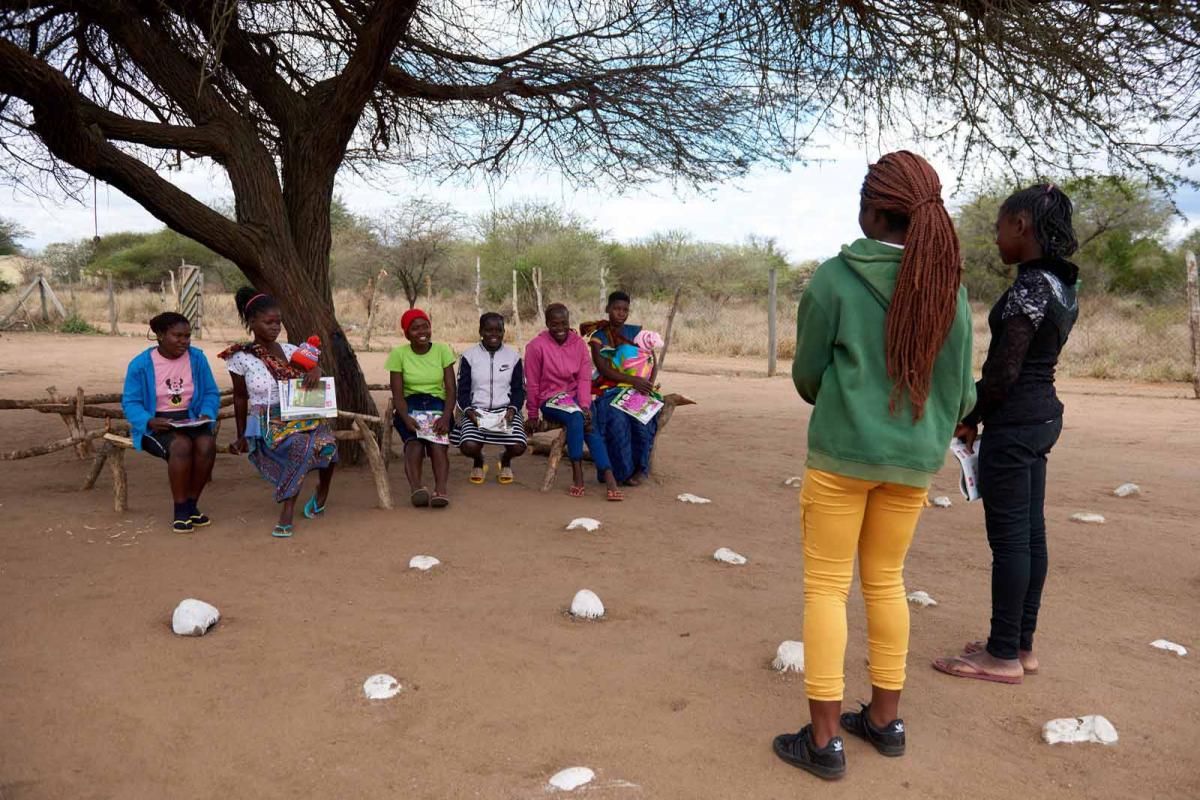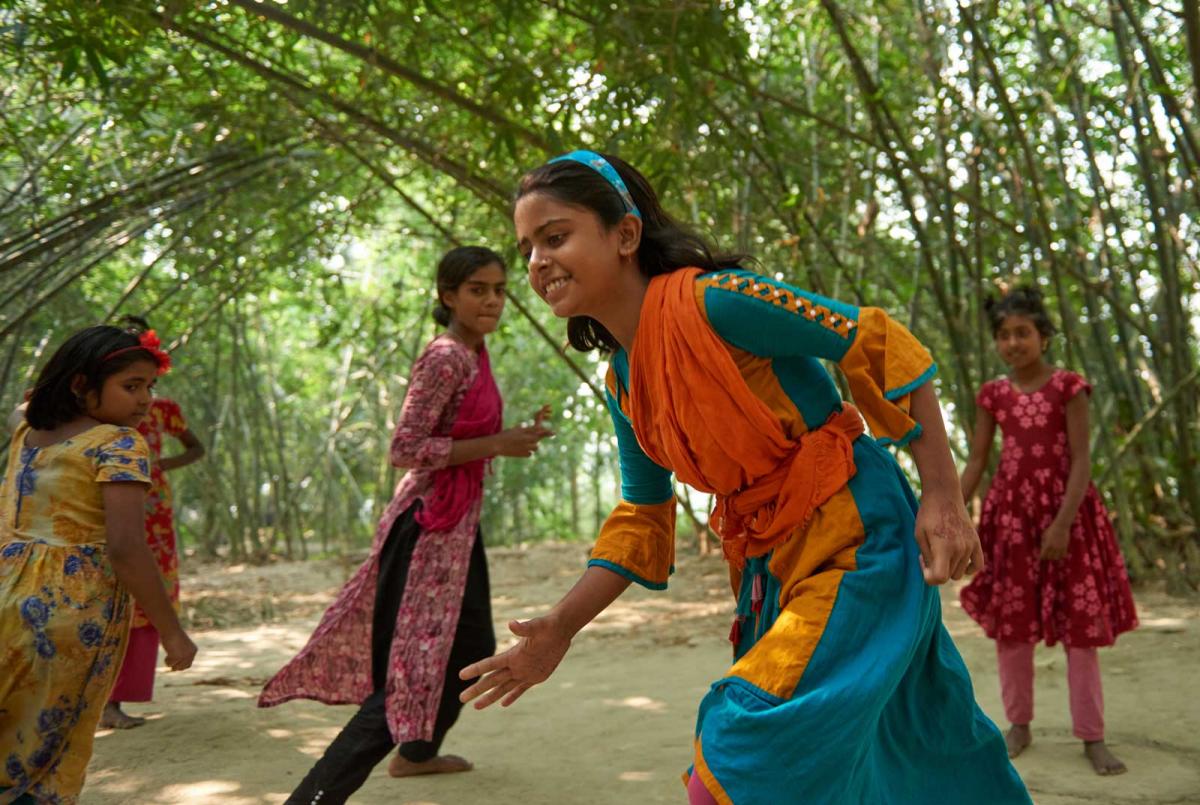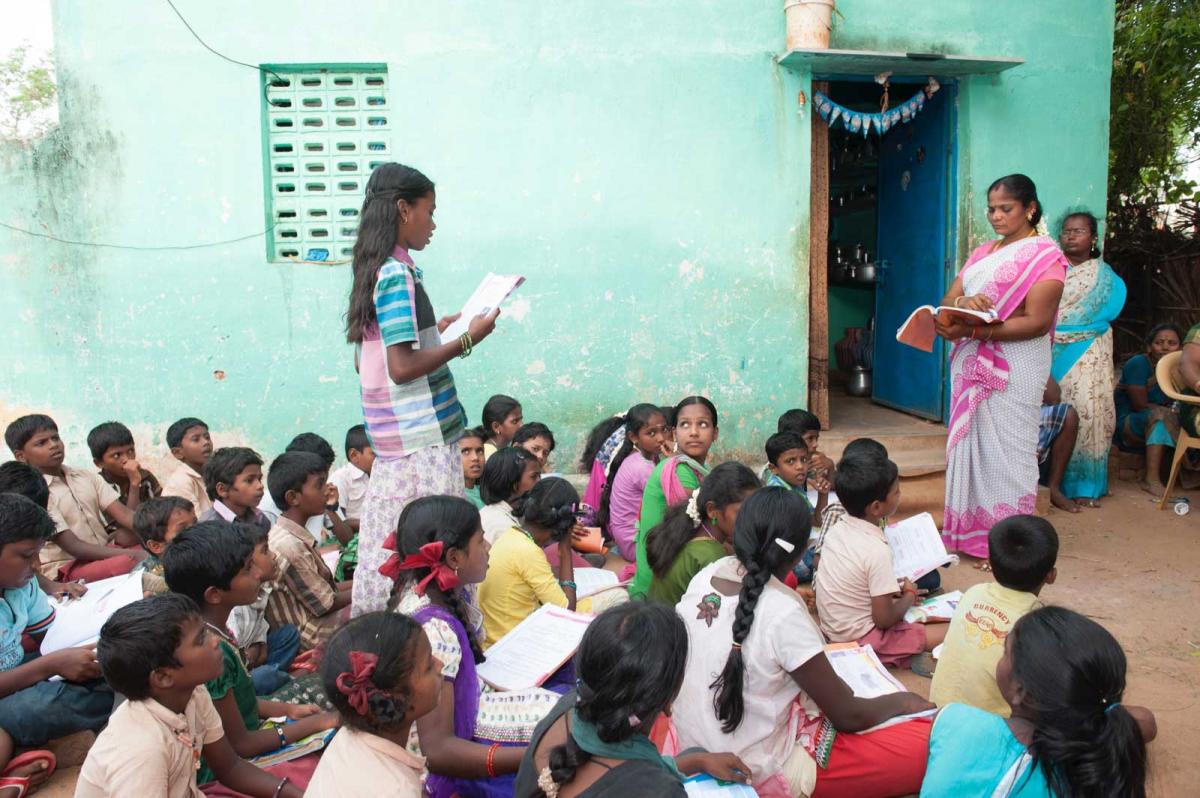
Two Child Rights Ambassadors in rural Mozambique hold a workshop for young girls who have been forced to drop out school and get married. Several are already mothers, but now they are informed about their rights to an education and to follow their dreams.
Every child has the same rights regardless of their gender. The UN Convention on the Rights of the Child states clearly that all children are equal. By promising to uphold children's rights, your government has agreed to respect and enforce these rights.
Why does it matter?
When girls and women have the same rights as boys and men, it is good not only for them but for everybody around them. Girls getting an education and being treated equally has been proven to reduce poverty and improve the quality of life for everyone, including boys and men.
Celebrate girls' rights
The United Nations has designated 11 October as the
International Day of the Girl Child. You can participate or organize events to raise awareness of girls' rights. Ensure that your family, village, or town understands these rights must be respected. Remember, the fight for rights isn't just for girls; boys must join the effort to effect real change.
Here's a look at what some articles of the UN Convention on the Rights of the Child say about girls' rights.

These girls in rural Bangladesh have time to play after school, an opportunity that is denied to many girls around the world. What’s it like where you live?
You and all other children should be able to play and rest. However, girls often have more chores at home than boys, leaving them with less free time. While girls are cleaning or caring for younger siblings, boys often have time to play or relax. In some rural areas, girls walk long distances to fetch water for their families. This can take up an entire day, leaving little time for homework, especially if there is no electricity at home.

Young girls and women raise their voices against male violence against women in London, UK. Have you ever done something similar?
No child should ever experience violence. Still, it remains common worldwide, with girls particularly at risk of being hit and harassed by, for example, a partner, their brothers, or parents. Violent abuse happens both in and outside the home. Additionally, some girls seeking help are not believed or supported. In extreme situations, such as war and natural disasters, girls are also at greater risk of experiencing violence and sexual abuse.

Did you know that depression is more common among girls than boys in many parts of the world?
When a girl becomes ill, she might not receive the same care as boys, especially in poor families. Sometimes, girls are given less food and are vaccinated less frequently than their brothers. This can lead to more illness and mortality among girls. Have you seen examples of this in your community?

Dayana, 15, has her hair fixed, after being rescued from a difficult life on the streets of Medellín, Colombia.
Girls often face more pressure regarding how they should look and act – from what they wear to their hobbies and dreams. Some aren't even allowed to do things like riding a bike or running, just because they're girls. Many girls experience a lot of stress and pressure due to tradition, peer pressure, and beauty standards.

Annanthi, 12, stands up to read in her village weekend school, run by local mothers.
Education is a right for all, and educated girls tend to lead better lives and contribute more to society. However, fewer girls start school, and many must leave early. This might be because their parents need them to help out at home or have safety concerns when their daughters travel to school.
Sometimes, people wrongly believe that education for girls isn't as necessary as for boys. Some think that education is wasted on a daughter because she will belong to another family when she marries. If the school has no separate toilets for girls, many stay home when they start their period. They miss lessons, and those who can’t catch up end up quitting school. Other girls leave because an adult at the school is mistreating them. There are even teachers and head teachers who try to force students to have sex with them by threatening them with low grades and failing them on their exams.
Girls who get an education marry later and have fewer and healthier children. Every extra year a girl attends school increases her future income by up to a fifth! It’s good for her and her family, but also good for the whole country.

Guerline has been used as a domestic slave in other people’s homes since she was five years old. In Haiti, where she's from, it is called being a "restavék" and is very common.
Neither girls nor boys should work before age 12 or do any heavy and dangerous work before 18. Still, girls often work and perform some of the hardest and least-paid jobs. This includes farm labour and housekeeping for private households. Many girls around the world are exploited in domestic slavery, sometimes working 12-14 hours per day without pay.
No one is allowed to harm children, not even in the name of tradition. While some traditions are positive, others, like the painful and harmful practice of cutting girls' private parts. This is seen in some cultures as necessary before marriage but can cause extreme pain as well as life-long injuries and suffering.

Adama, 15, is talking about equal rights for girls in front of the whole village. When her mother was young, girls in Senegal weren’t allowed to speak out, but now the village meetings include everyone.
Your voice matters. Unfortunately, girls' voices are too often ignored and seen as less important than boys'.